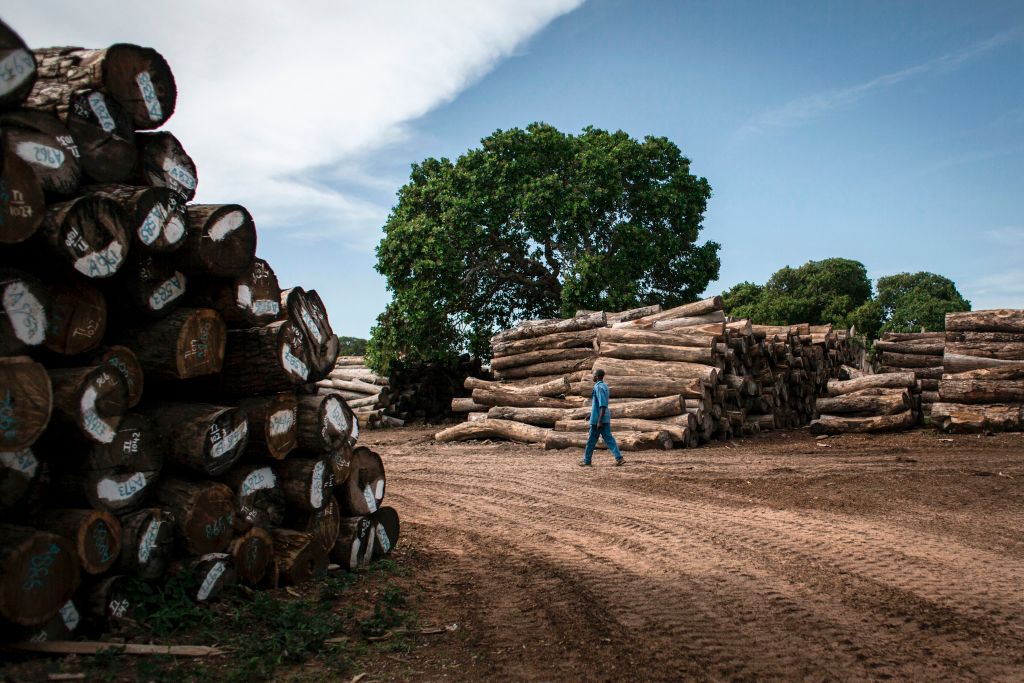‘Insatiable Demand’ for Rare Wood in China Leads to Stripped Forests
ADF STAFF
Since early 2020, Mali has banned the export of rosewood, also known as kosso. Despite that, nearly 150,000 tons of the wood — equal to 220,000 trees — left the country over the last two years, all of it with a single destination: China.
“Rosewood is a species traditionally and culturally valued by the Chinese, so there’s almost like an insatiable demand there,” Haibing Ma, Asia policy expert for the London-based Environmental Investigation Agency (EIA), told Voice of America.
China’s hunger for rosewood and other forest materials, such as ebony and teak, is stripping forests, crippling both the ecosystems and the human communities that rely on them.
In the process, the illegal logging trade deprives nations of much-needed revenue, drives corruption at all levels of government and, in some cases, funds terror groups such as Boko Haram.
EIA’s recent report, “Poached Timber,” details the environmental, economic, and social destruction caused by China’s widespread support for illegal logging across Africa.
China’s 1998 National Forest Protection Program put tight controls on domestic harvesting of rosewood and other highly sought-after hardwoods after runaway demand devastated its own supplies.
China’s hunt for foreign rosewood supplies soon led it to The Gambia and Benin. A decade later, in 2011, The Gambia declared its rosewood stocks to be virtually extinct. Over time, Chinese-funded logging activities spread across dozens of African countries.
In Mozambique in 2017, then-Environment Minister Celso Correia said illegal logging costs his country half a billion dollars a year in lost revenue. A crackdown on 120 timber yards found illegal operations in more than half of them. That same year, Mozambique exported almost a million metric tons of logs to China.
Nearly 90% of illegal logging is happening in countries such as Nigeria that have long banned the export of logs. Nigeria ranks among the continent’s top exporters of rosewood and other logs, having shipped out nearly $1.4 billion in logs between 2014 and 2018, despite having banned the practice in 1976.
“China’s ongoing large-scale imports of logs — often in contravention of African national laws — are preventing reform of national forest sectors and the development of local economies,” the EIA reported.
Much of the data on hardwood poaching in Africa comes from Chinese import records detailing the arrival of logs from the continent.
Some of those trees in Nigeria were cut in areas controlled by Boko Haram, who may have benefited from the harvest, according to the EIA.
Rosewood and other species are protected by the CITES, the Convention on International Trade of Endangered Species, which limits the amount of logs a country can harvest and export while guaranteeing the survival of the species. CITES puts the burden on receiving countries to detect CITES violations.
In the case of Chinese-bound logs from Africa, poachers have several ways to get around CITES limits. They can misidentify the logs, which are transported in shipping containers. They can also bribe customs officers and inspectors to look the other way. In some cases, newly felled logs are disguised as old wood cut before the ban on exports.
The need for roads and heavy equipment means government actors are often involved in China’s illegal logging operations.
The destruction of The Gambia’s forests may have hurt the country, but it didn’t hurt ex-President Yahya Jammeh. He set up companies to coordinate his involvement in transporting millions of dollars in timber illegally harvested in Guinea-Bissau to be shipped from his country’s port, according to a report by the Global Initiative Against Transnational Organized Crime.
In eastern Namibia, which banned the export of logs in 2018, investigators with the Organized Crime and Corruption Reporting Project found many illegal logging camps and sawmills but no standing trees.
Laborer Jacobus Oma helped load Chinese-owned trucks with ancient rosewood logs even as he lamented what their loss meant to his land and his people. Oma said rosewood seed pods are a traditional food for his people, the San, during the dry season.
“The children will never see trees like this in our lives again,” Oma said.


Comments are closed.